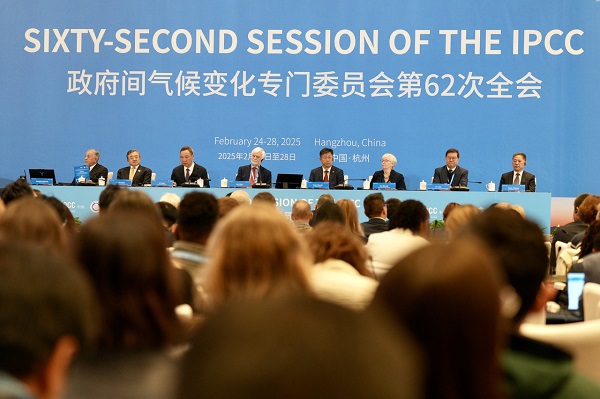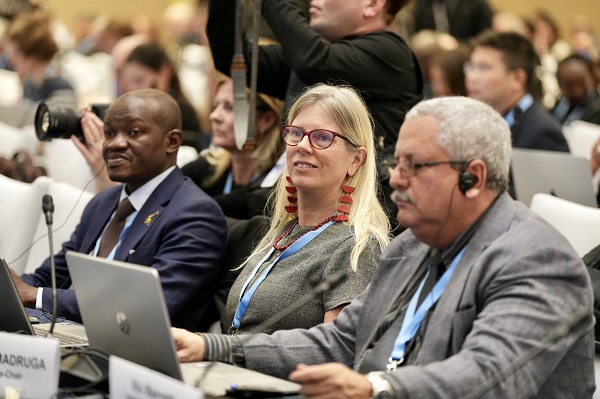Hangzhou meeting shows China's global climate governance zeal

The 62nd session of the Intergovernmental Panel on Climate Change is currently ongoing in Hangzhou city. [Photo/zjol.com.cn]
The 62nd session of the Intergovernmental Panel on Climate Change, or IPCC, opened on Feb 24 in Hangzhou – capital of East China's Zhejiang province – representing the highest-level and biggest international meteorological conference ever hosted by the country.
As a key platform for global climate governance, the meeting – which runs to Feb 28 – aims to advance international climate action, strengthen cooperation and showcase China's latest research and governance practices in addressing climate change.
Since its establishment in 1988 by the World Meteorological Organization or WMO and the United Nations Environment Programme, the IPCC has played a crucial role in assessing climate change science.
With 195 member countries, it has completed six assessment cycles and published 43 reports – providing vital scientific references for governments worldwide to shape climate policies and enhance global cooperation.
China has been a proactive contributor to the IPCC from the very beginning. Former China Meteorological Administration or CMA Chief Zou Jingmeng was instrumental in the panel's creation and was elected WMO president in the same year.
In 1994, China established the Waliguan Global Atmosphere Watch Station in Northwest China's Qinghai province. The station has since provided critical data on rising carbon dioxide levels – known as the "Waliguan Curve" – contributing to IPCC scientific assessments.
China is widely said to remain fully committed to addressing climate change, integrating climate action into its sustainable development goals. The nation's "dual carbon" pledge, announced in 2020, aims to peak carbon emissions before 2030 and achieve carbon neutrality by 2060.
The CMA has made substantial progress in climate monitoring, detection, attribution studies and climate system modeling, fostering innovation in adaptation and mitigation strategies.
As the IPCC continues its scientific assessments, it's generally felt that the role of climate science in guiding global action will only grow.
Moreover, China's meteorological sector is actively contributing to global initiatives. By sharing its expertise and solutions, China is widely understood to remain deeply engaged in shaping the future of global climate governance.

Participants listen intently to a presentation. [Photo/zjol.com.cn]



